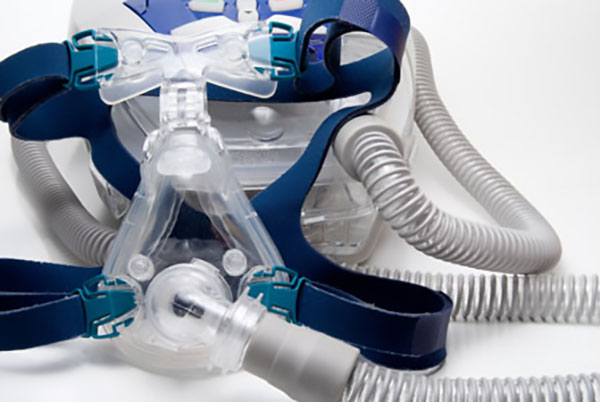Dental Oral Appliance for Sleep Apnea Treatment

For people with obstructive sleep apnea, a dental oral appliance is a common alternative to a continuous positive airway pressure machine, which is the treatment most often used to address this type of sleep disorder. A dentist can create a customized device similar to a mouthguard or retainer that fits over the teeth. If a patient has had trouble using a CPAP machine, it helps to know how a dental appliance works to reduce snoring and promote healthy sleep.
What is sleep apnea?
Sleep apnea is a type of disorder that disrupts a person’s sleep due to periods of interrupted breathing. There are three main categories of this condition, including obstructive sleep apnea, central apnea, and mixed apnea. OSA is the most common of the three types and occurs when a person’s breathing stops due to a blocked or collapsed upper airway. This results in a decrease in the amount of oxygen in the blood, signaling the body to wake up in order to breathe.
How can a dental appliance help treat sleep apnea?
The use of a CPAP machine or oral appliance is beneficial for people with OSA. Many people use a CPAP machine at night while sleeping, which uses a mask to deliver pure, pressurized air using a fan and filter. However, this treatment method is not ideal for everyone. Some people find it difficult to sleep with the noise the machine makes or find the mask uncomfortable.
In these situations, a dental appliance can help address the sleep disorder in a less obtrusive manner. While this solution may not be effective for people with very severe apnea, people with mild or moderate apnea may benefit from the way a mouthpiece places the mouth in a more favorable position for keeping the airway open. There are two main types of devices used for this purpose: Tongue retaining devices and mandibular advancement devices.
Tongue retaining device
Among people with sleep apnea, a larger-than-average tongue or excess tongue fat at the base can sometimes contribute to the condition. Additionally, lower placement of the tongue in the mouth can obstruct the airway and cause other breathing problems. A tongue retaining device pulls the tongue into a forward position. These mouthpieces typically feature a bulb section that the tongue sits inside and an area for the teeth to bite down on or a raised section that rests against the lips.
Mandibular advancement device
A mandibular advancement device looks similar to a mouthguard and is designed to move the jaw and tongue forward. When purchased from a dentist, a custom guard can be made that is designed to fit snugly over the teeth. The splint is only worn at night and can also help with snoring.
Conclusion
Living with obstructive sleep apnea can leave a person feeling tired during the day and restless at night. If you are not experiencing good results with a CPAP machine, talk to a dentist about using a dental appliance to help you get a better night’s sleep and feel more energized during the day.
Request an appointment here: https://www.lilburnfamilydentistry.com or call Lilburn Family Dentistry at (770) 800-0178 for an appointment in our Lilburn office.
Check out what others are saying about our services on Yelp: Read our Yelp reviews.
Recent Posts
Broken or missing teeth can weaken a patient's bite force. Fortunately, a restorative dentist can repair these teeth and, in turn, improve bite force and chewing function. The goal is to help patients enjoy the benefits of a fully functional smile.If left in disrepair, a damaged or decayed tooth can lead to larger issues—such as…
Curious about what a restorative dentist does? Read on to learn more. The unexpected nature of dental injuries can turn ordinary moments into emergencies. These injuries impact oral health and comfort, whether it is from sports mishaps, accidental falls, or an auto accident. A restorative dentist has the skills and tools to repair and restore…
Restorative dentists aim to protect or restore your oral health, function, and appearance. Achieving these goals often involves repairing or replacing missing or damaged teeth. While they offer many restorative services, here are the five most common.A restorative dentist will introduce a dental bridge to ensure the teeth do not shift after a tooth is…
When sudden dental pain occurs, an emergency dentist can provide critical relief and timely treatment. A toothache often appears unexpectedly, disrupting daily activities or restful sleep at night, signaling that you need urgent dental care. Understanding what steps to take when this type of pain occurs can help prevent further complications to your teeth and…


